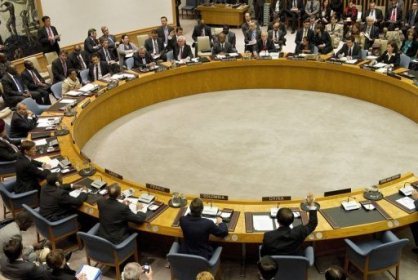U.N. Condemns Afghan Attacks as Karzai Blames Intelligence Failure
إقرأ هذا الخبر بالعربية
The U.N. Security Council on Monday condemned "in the strongest terms" a coordinated insurgent assault on Kabul that marked the biggest militant attack on the city in a decade of war.
"The members of the Security Council underlined the need to bring perpetrators, organizers, financiers and sponsors of these reprehensible acts of terrorism to justice," the 15-member council said in a statement.
"No terrorist act can reverse the path towards Afghan-led peace, democracy and reconstruction in Afghanistan, which is supported by the people and the government of Afghanistan and the international community.
U.N. Secretary General Ban Ki-moon similarly condemned attacks earlier on Monday, saying in a statement that "ordinary Afghans" were bearing the brunt of such violence and calling on all parties in the conflict to protect civilians.
Afghan authorities said the attacks on Sunday and Monday left 51 people dead, including four civilians, 11 members of the security forces and 36 militants.
Explosions and gunfire rocked the capital Sunday and overnight before Afghan forces regained control, heightening fears for the future of the vulnerable nation as NATO prepares to withdraw its 130,000 troops.
Afghan President Hamid Karzai blamed intelligence failures, particularly on the part of NATO forces, for the militant attacks.
"The terrorists' infiltration in Kabul and other provinces is an intelligence failure for us and especially for NATO and should be seriously investigated," Karzai said in a statement.
The United States said the attacks were likely carried out by Haqqani militants who operate from sanctuaries in Pakistan and dismissed Karzai's claim of an intelligence failure.
Defense Secretary Leon Panetta said the attacks were largely "symbolic" and praised the "great job" done by the Afghan security forces.
"There were no tactical gains here. These are isolated attacks that are done for symbolic purposes," Panetta told a news conference.



